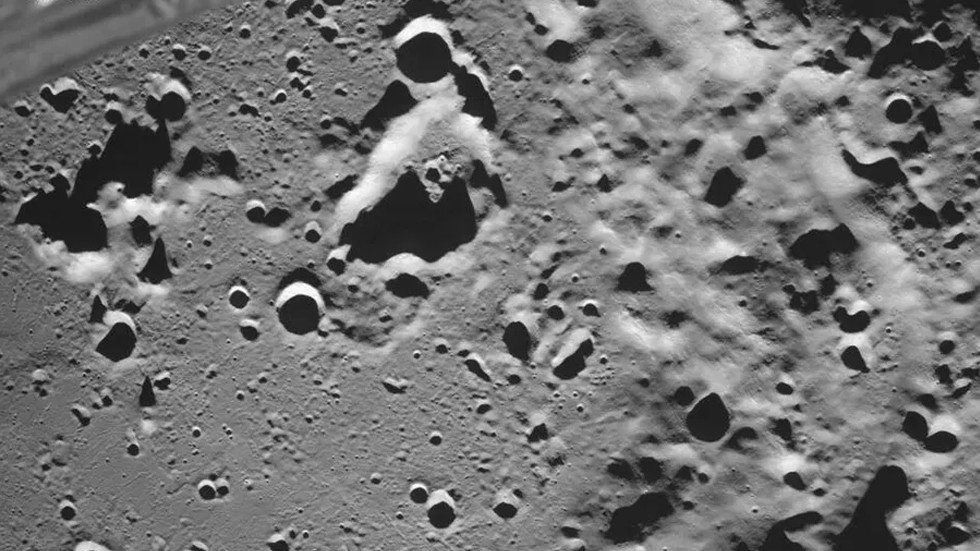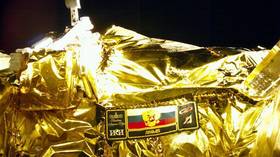
Roscosmos will study high-resolution photos from the dark side of the moon

© Roscosmos / ICI RAS
The automatic interplanetary station Luna-25 has sent back its first photographs of a polar crater on the far side of the moon, Roscosmos revealed on Thursday. The first Russian moon probe in 47 years is scheduled to make lunarfall next week.
“The image taken today at 08:23 Moscow time shows the south polar crater Zeeman on the far side of the Moon. The coordinates of the center of the crater correspond to 75 degrees south latitude and 135 degrees west longitude,” the state space corporation said. “The images obtained significantly complement the currently available information about this crater.”
Zeeman has a relatively flat bottom but its sides rise almost eight kilometers (5 miles) above the lunar surface. Being on the side of the moon perpetually faced away from earth, the crater is not observable by astronomers.
The imagery was obtained using the STS-L television camera complex, created by the Space Research Institute of the Russian Academy of Sciences. Luna-25 has also carried out measurements of gamma ray and neutron flux from the surface of the moon, as well as the parameters of circumlunar space plasma and the gas and dust exosphere in the circumlunar orbit, Roscosmos noted.

Read more
Luna-25 is the first Moon probe made in modern Russia, entirely from domestic components. It was developed by the S. A. Lavochkin Scientific and Production Association. Launched on August 11, it aims to become the first spacecraft to achieve a soft landing in the south polar region of the earth’s satellite, which should happen on or around August 21.
The main goal of the mission is to examine the lunar soil for the presence of ice, but Roscosmos said it also wants to test soft landing technology, analyze the lunar soil, and conduct long-term scientific research of the lunar exosphere and the upper layer of regolith of the Moon’s south pole.
READ MORE: Russia reignites space race with historic lunar mission
The launch of Luna-25 from the Vostochny cosmodrome in the Amur Region signaled Russia’s return to the moon exploration program after a hiatus of 47 years. The original Luna program began in the Soviet Union and had 24 successful missions to the moon between September 1958 and August 1976.




